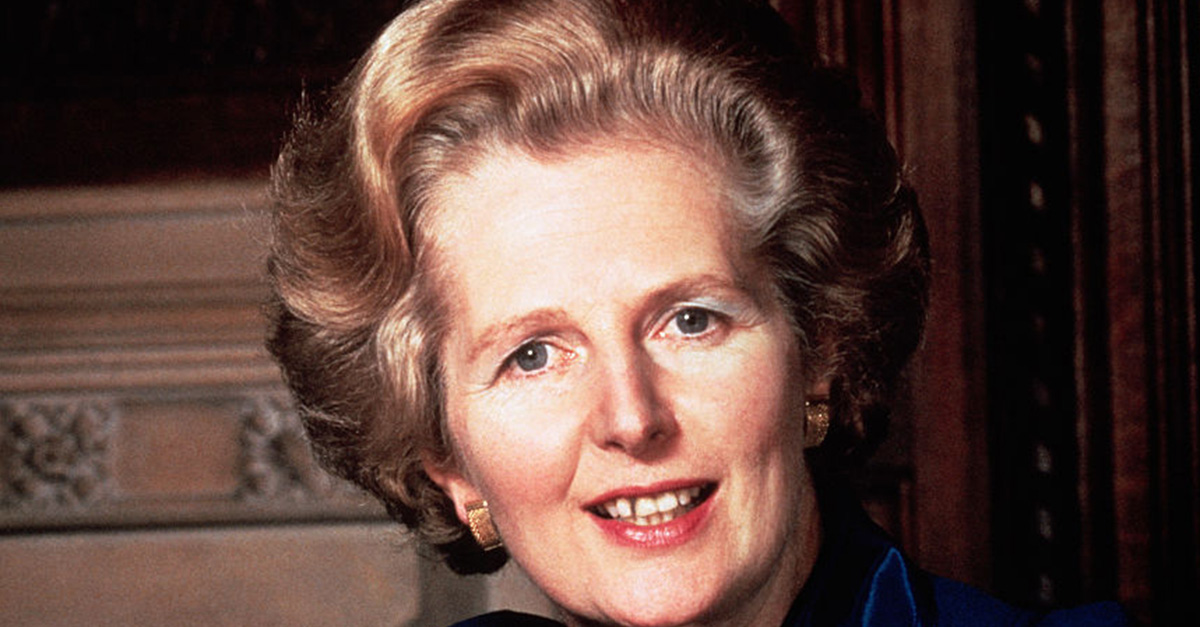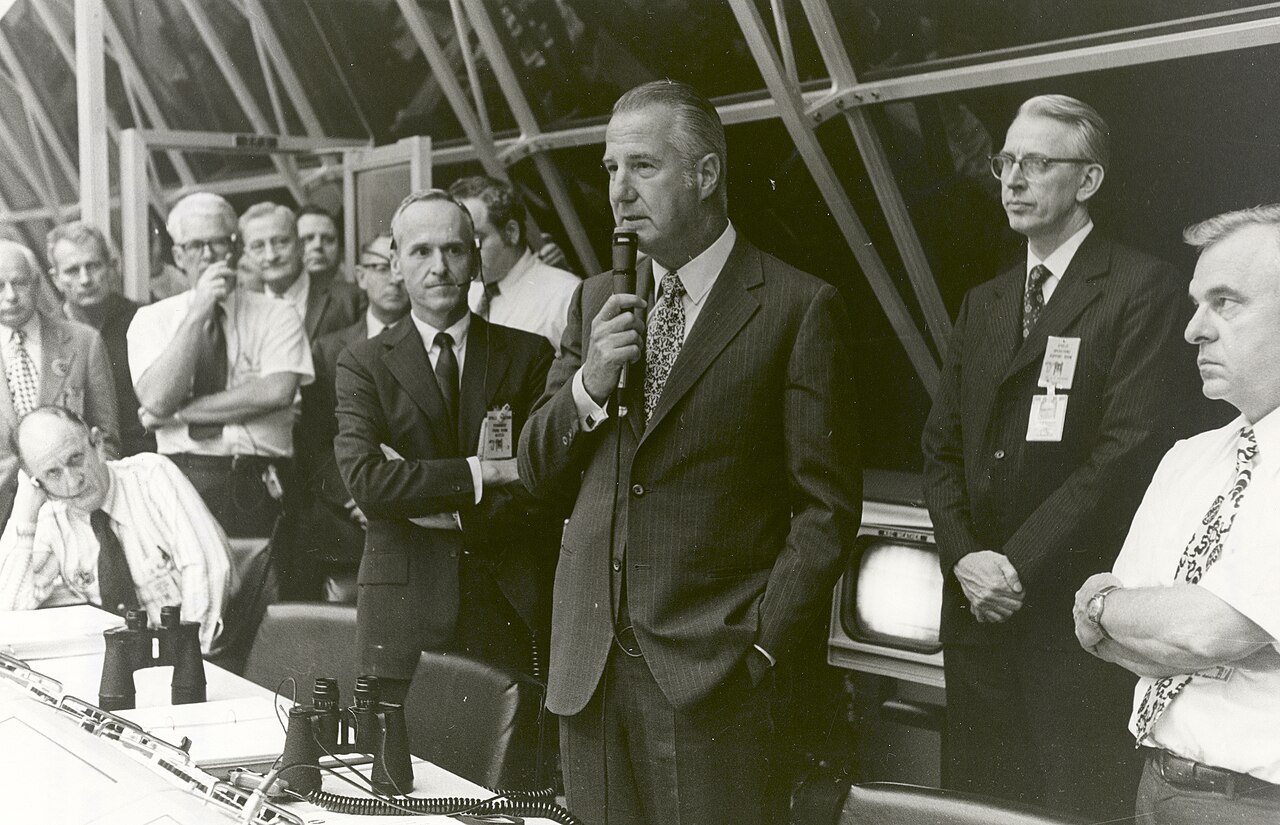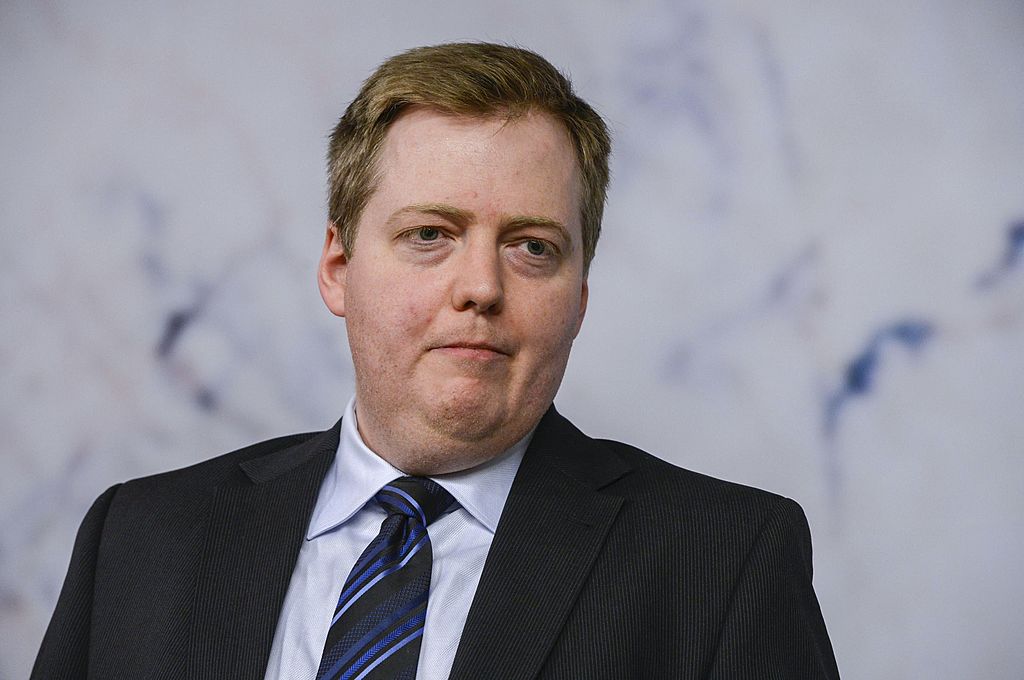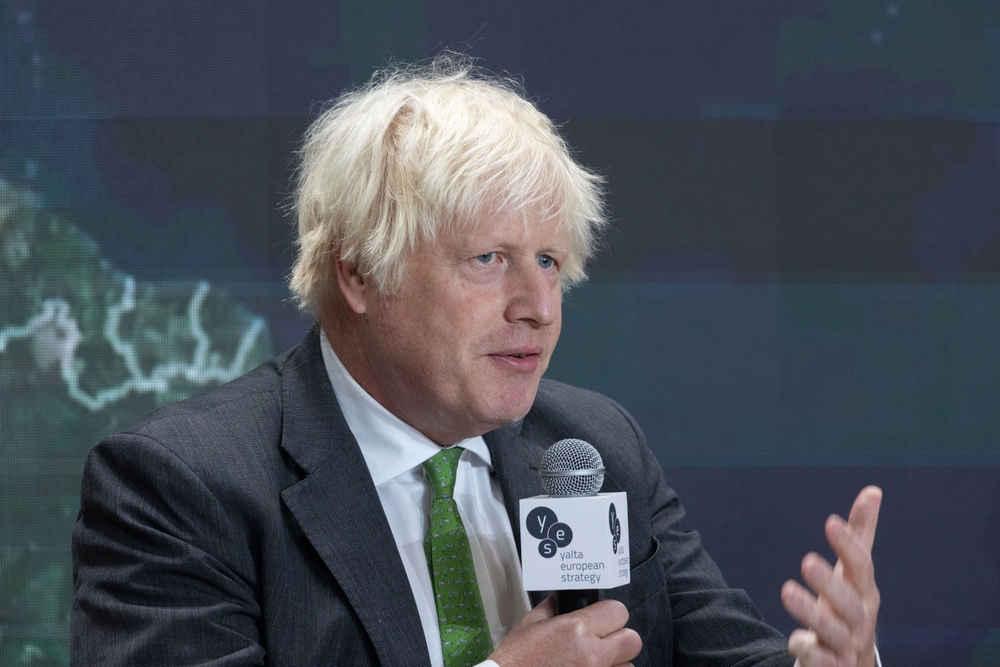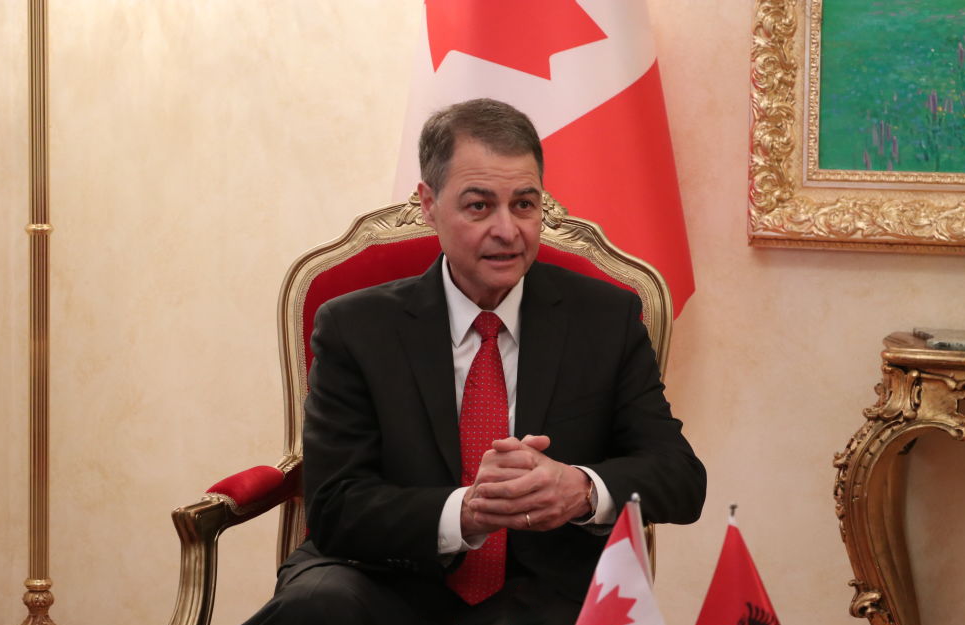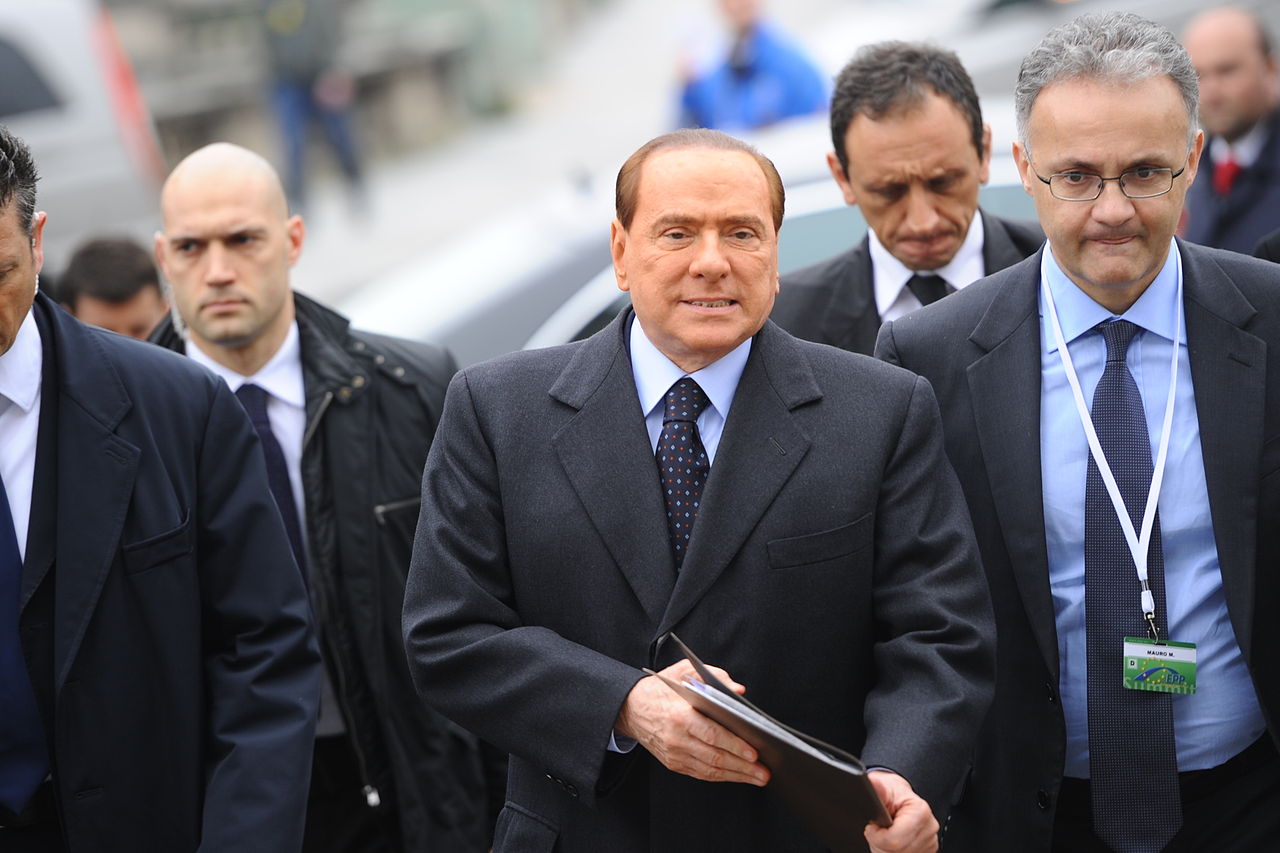Government Officials Who Were Forced To Resign
You don't have to be a paragon of good behavior to be elected (or not) to lead a country, but your conduct while in office does have to be somewhat in keeping with the standards set by your predecessors. These world leaders were forced to resign for scandalous behavior that destroyed the electorate's trust or for poor governing decisions.
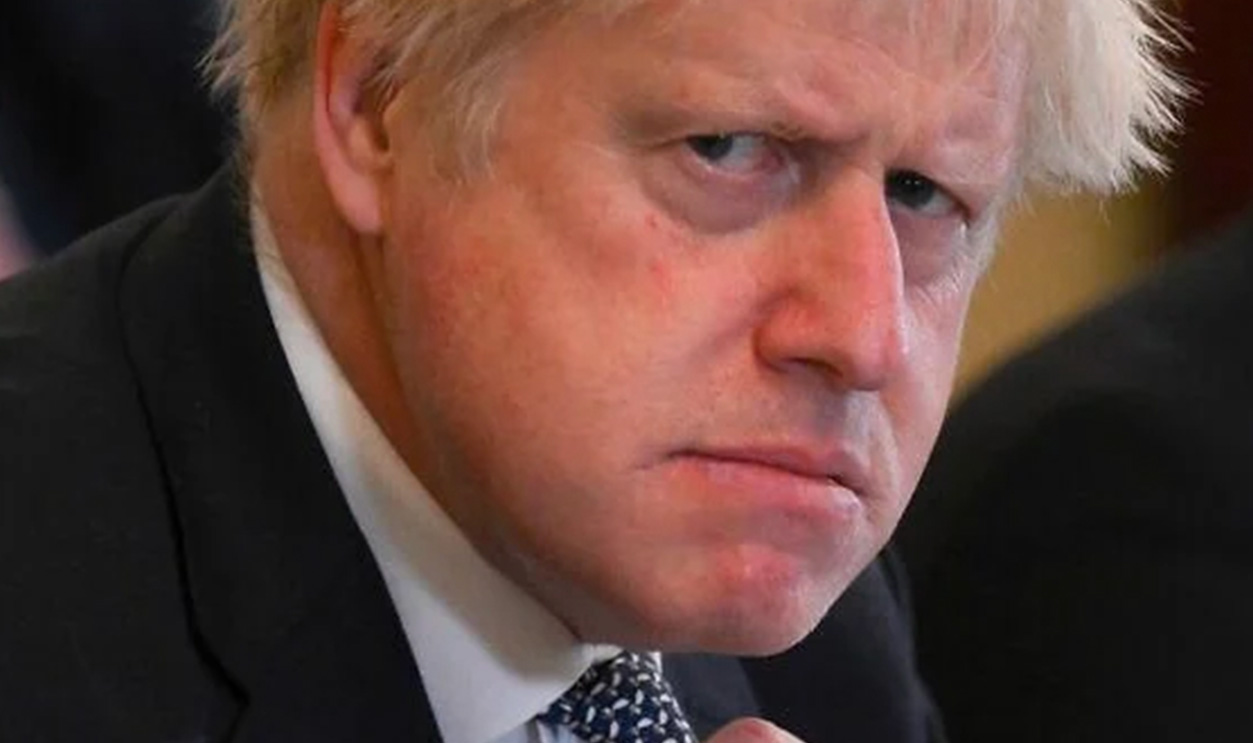
Neville Chamberlain, Prime Minister Of The United Kingdom
Neville Chamberlain was Prime Minister of the United Kingdom at the beginning of the Second World War. He met with Adolf Hitler twice on October 15 and 22, 1939, to avoid a war on the continent. Chamberlain also acquiesced to Hitler's demands to give "the Sudetenland" to Hitler. He would resign following Germany's invasion of Poland amid pressure from the House of Commons and his catastrophic mishandling of the Nazi threat.
John Profumo, Secretary Of State For War
Known as the "Profumo scandal," John Profumo's resignation came on June 5, 1963. He was the British Government's Secretary of State for War under Prime Minister Harold Macmillan. Profumo had been having an extramarital affair with a 19-year-old model, Christine Keeler (who reportedly was also involved with a Soviet naval attaché). Profumo's lack of transparency about this to the House of Commons caused an uproar, and he resigned.
 Evening Standard, Getty Images
Evening Standard, Getty Images
Harold Macmillan, Prime Minister Of The United Kingdom
But Profumo's resignation couldn't save Prime Minister Harold Macmillan. The Profumo scandal brought down the government, resulting in Macmillan's resignation on October 18, 1963.
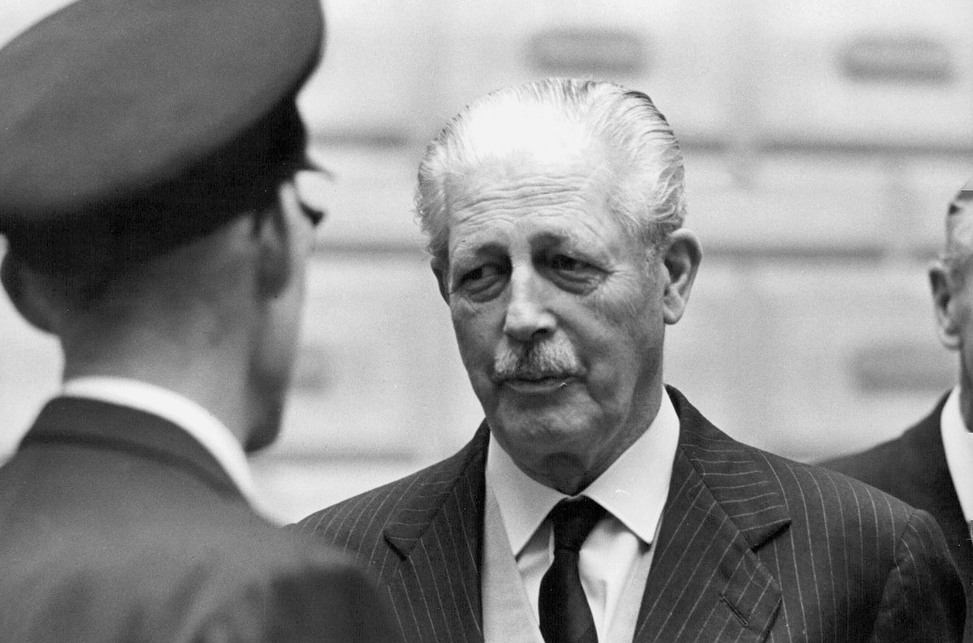 Olle Ohlsson, Wikimedia Commons
Olle Ohlsson, Wikimedia Commons
Charles De Gaulle, President Of France
Following defeat in the 1969 constitutional referendum, which sought to remove the French Senate's authority to block laws, President Charles de Gaulle resigned in disgrace.
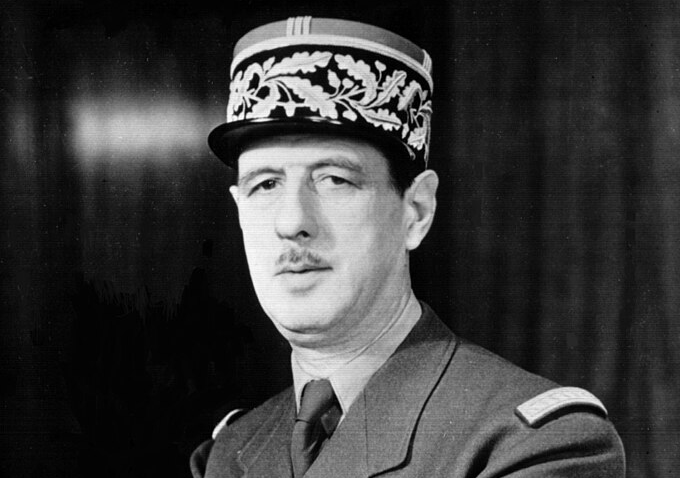 Office of War Information, Overseas Picture Division, Wikimedia Commons
Office of War Information, Overseas Picture Division, Wikimedia Commons
Jens Otto Krag, Prime Minister Of Denmark
While Jens Krag was not an unpopular Prime Minister in Denmark, and his bid to join the European Community in 1972 was successful, with Denmark voting resoundingly (62% in favor) of joining what would become the European Union, his struggles with alcoholism throughout his premiership caused issues. He resigned after the referendum due to "becoming tired of politics".
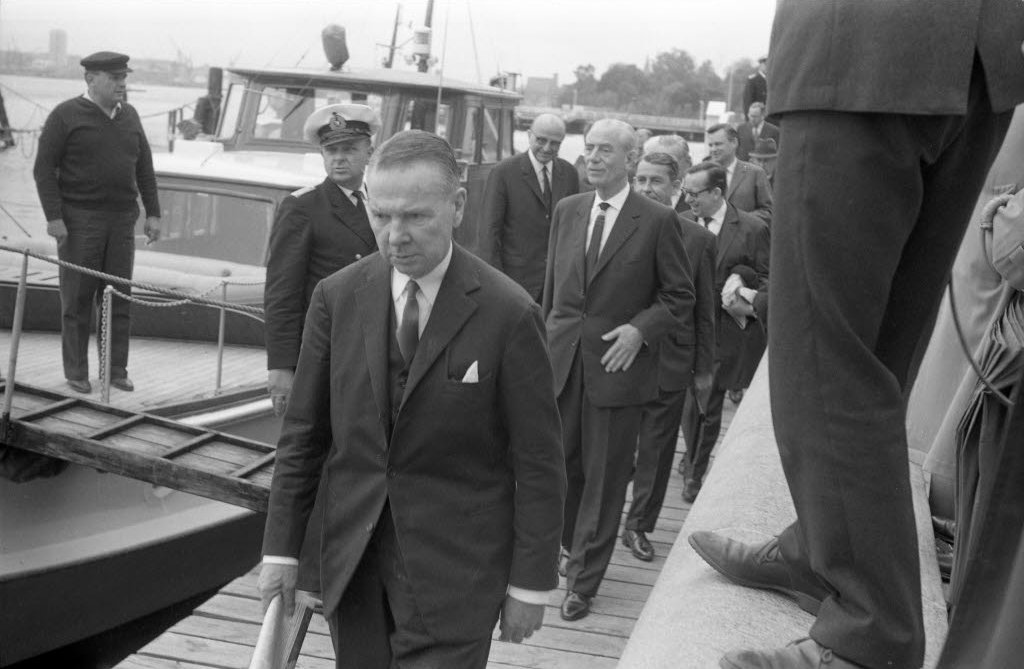 Stadtarchiv Kiel, CC BY-SA 3.0, Wikimedia Commons
Stadtarchiv Kiel, CC BY-SA 3.0, Wikimedia Commons
Spiro Agnew, Vice-President Of The United States
The vice president under Richard Nixon was among the first to resign after being criminally investigated for receiving kickbacks from an engineering firm in Baltimore County, Maryland. He resigned on October 10, 1973, before appearing in federal court under tax evasion charges. He would not be the last domino to fall from the Nixon administration.
Golda Meir, Prime Minister Of Israel
Golda Meir was the Prime Minister of Israel during the 1973 Yom Kippur War, fought between Egypt and Israel. Despite Israel's victory in the conflict, which lasted just a few months, Meir fell out of favor with the Israeli people, who felt Israel was unprepared for war. Meir resigned on April 11, 1974.
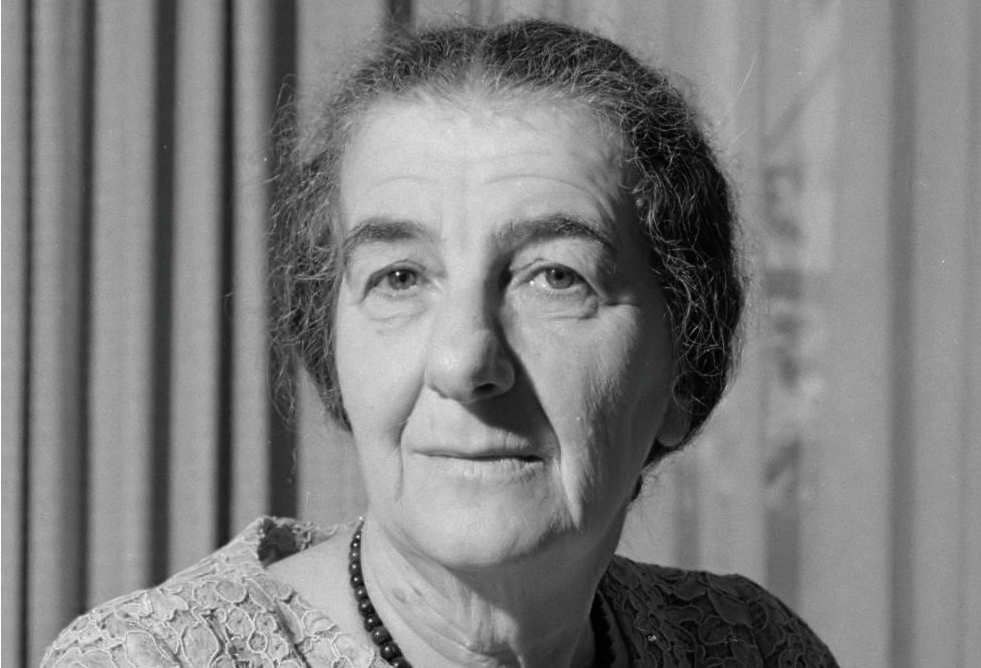 Willem van de Poll, CC BY-SA 4.0, Wikimedia Commons
Willem van de Poll, CC BY-SA 4.0, Wikimedia Commons
Willy Brandt, Chancellor Of West Germany
The Guillaume affair occurred in 1974 in West Germany and was one of the most shocking scandals of European politics in the 1970s. It involved revealing that there was an East German spy within the Government of West Germany. The East German spy in question was Gunter Guillaume, a personal assistant to Chancellor Brandt. Willy Brandt's closeness with Guillaume couldn't be ignored, and the Chancellor resigned on May 88, 1974.
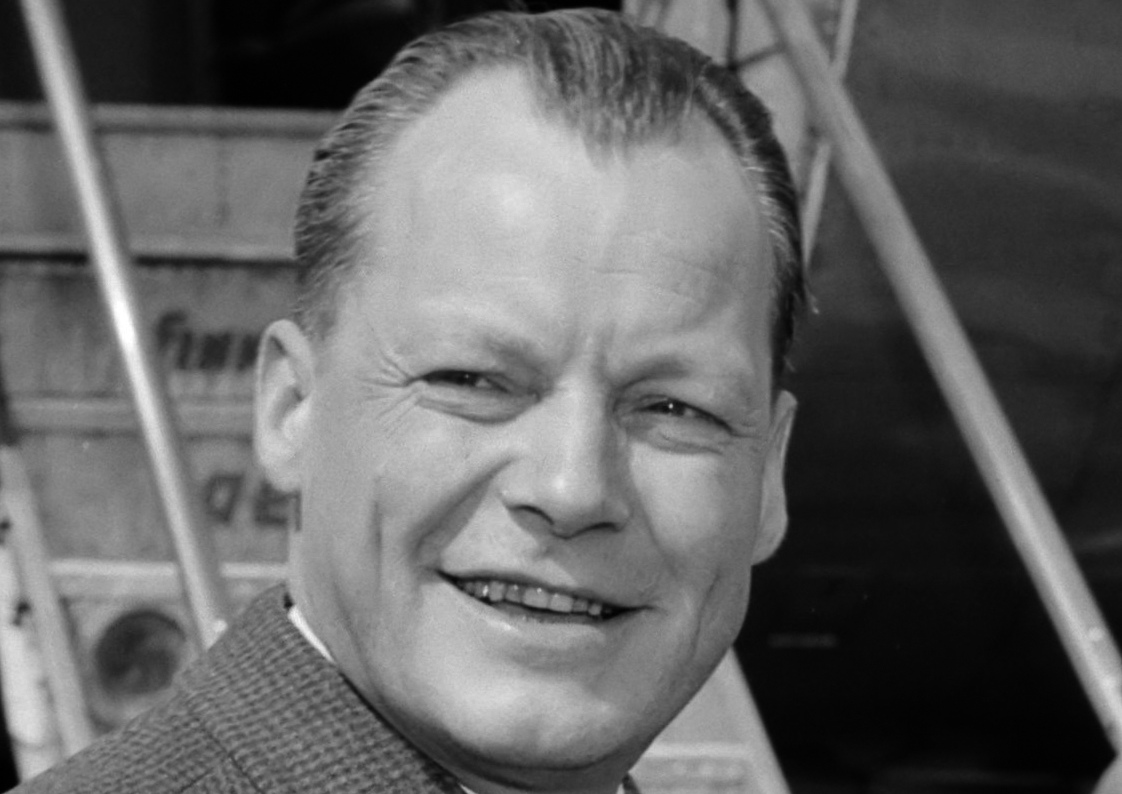 Wim van Rossem for Anefo, CC0, Wikimedia Commons
Wim van Rossem for Anefo, CC0, Wikimedia Commons

History's most fascinating stories and darkest secrets, delivered to your inbox daily.
Richard Nixon, President Of The United States
One of the most infamous scandals in American political history was the downfall of Richard Nixon. Known as the Watergate scandal, several of Richard Nixon's cronies broke into the Democratic National Convention headquarters in 1972 and planted listening devices. Nixon's attempts to hide his involvement or knowledge of this break-in brought down his government on August 9, 1974, following his impeachment.
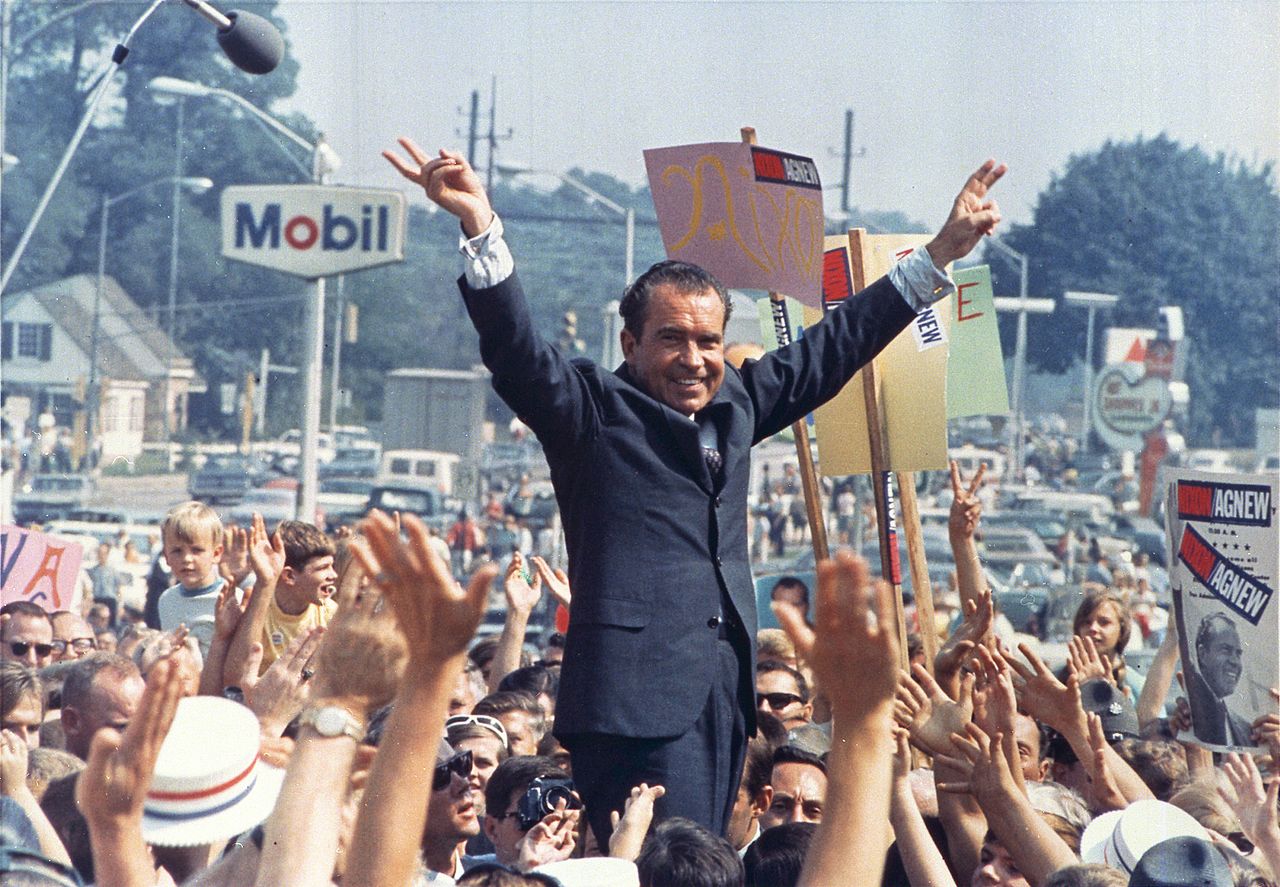 Ollie Atkins, White House photographer, Wikimedia Commons
Ollie Atkins, White House photographer, Wikimedia Commons
Kakuei Tanaka, Prime Minister Of Japan
Kakuei Tanaka was the Prime Minister of Japan between 1972 and 1974, resigning (despite his initial popularity) due to several scandals. These included purchasing a geisha and having an affair with the secretary of Etsuzankai, with as many as 100,000 Tanaka supporters who contributed to his election campaign. He resigned rather than let the affair with the secretary become public knowledge. However, in 1976, it was revealed that Tanaka had taken a bribe of $1.8 million to purchase Lockheed aircraft for a Japanese airliner. He was arrested in 1976.
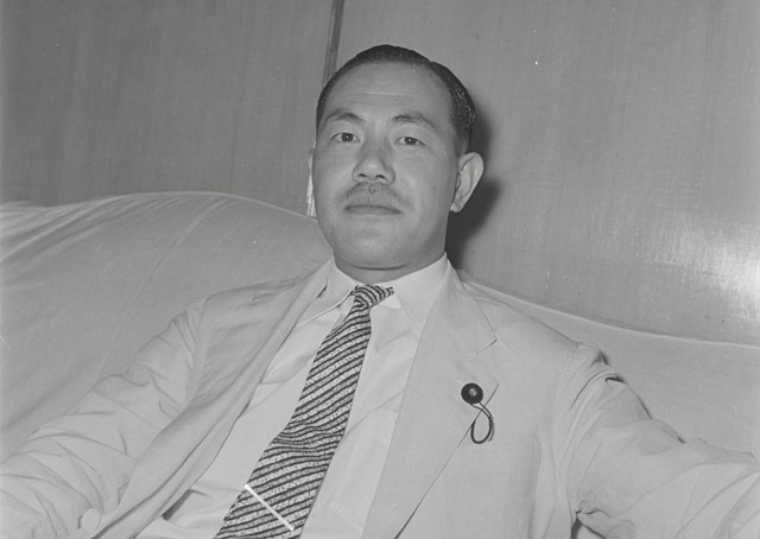 Bungei Shunjyu Magazine, Wikimedia Commons
Bungei Shunjyu Magazine, Wikimedia Commons
Carroll O'Daly, President Of Ireland
Following several political assassinations carried out by the Irish Republican Army in the mid-1970s, Irish President Carroll O'Daly was forced to resign due to unpopularity. When the Irish government introduced a bill to increase the number of days the police could detain people (without charge) from two to seven, O'Daly referred the Bill to the Irish Supreme Court. On the same day, the IRA killed a policeman with a bomb. O'Daly was blamed by his colleagues and resigned.
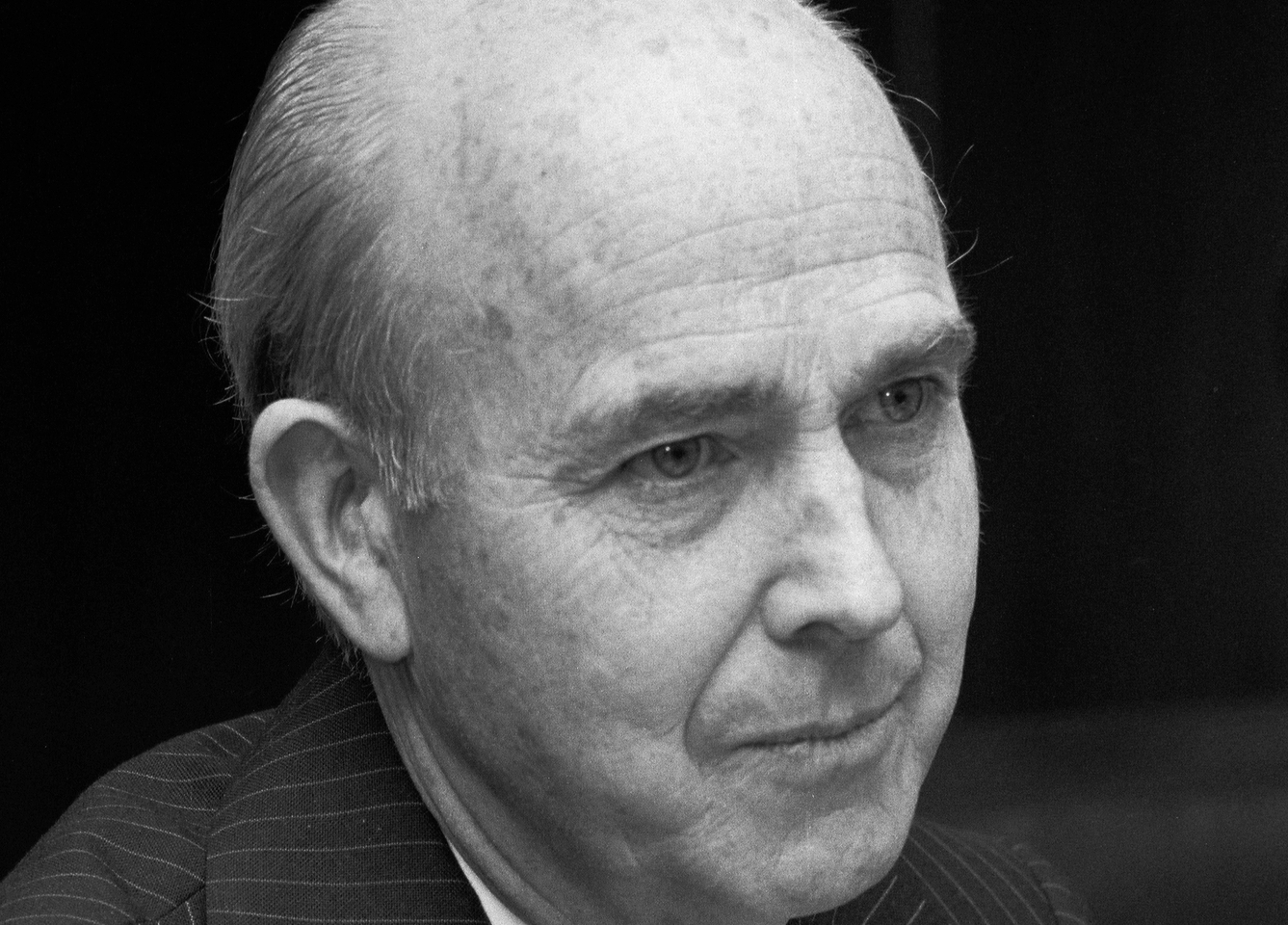 European Union, CC BY 4.0, Wikimedia Commons
European Union, CC BY 4.0, Wikimedia Commons
Yitzhak Rabin, Prime Minister Of Israel
Despite a successful second term as Prime Minister, Yitzhak Rabin's first term in office in Israel was less successful. He resigned following the revelation by an Israeli journalist that he and his wife had opened a joint dollar account in a Washington DC bank during his tenure as ambassador—and that the account was still open. This, a violation of Israeli law, saw Rabin resign, but not before proof of a second account had been revealed.
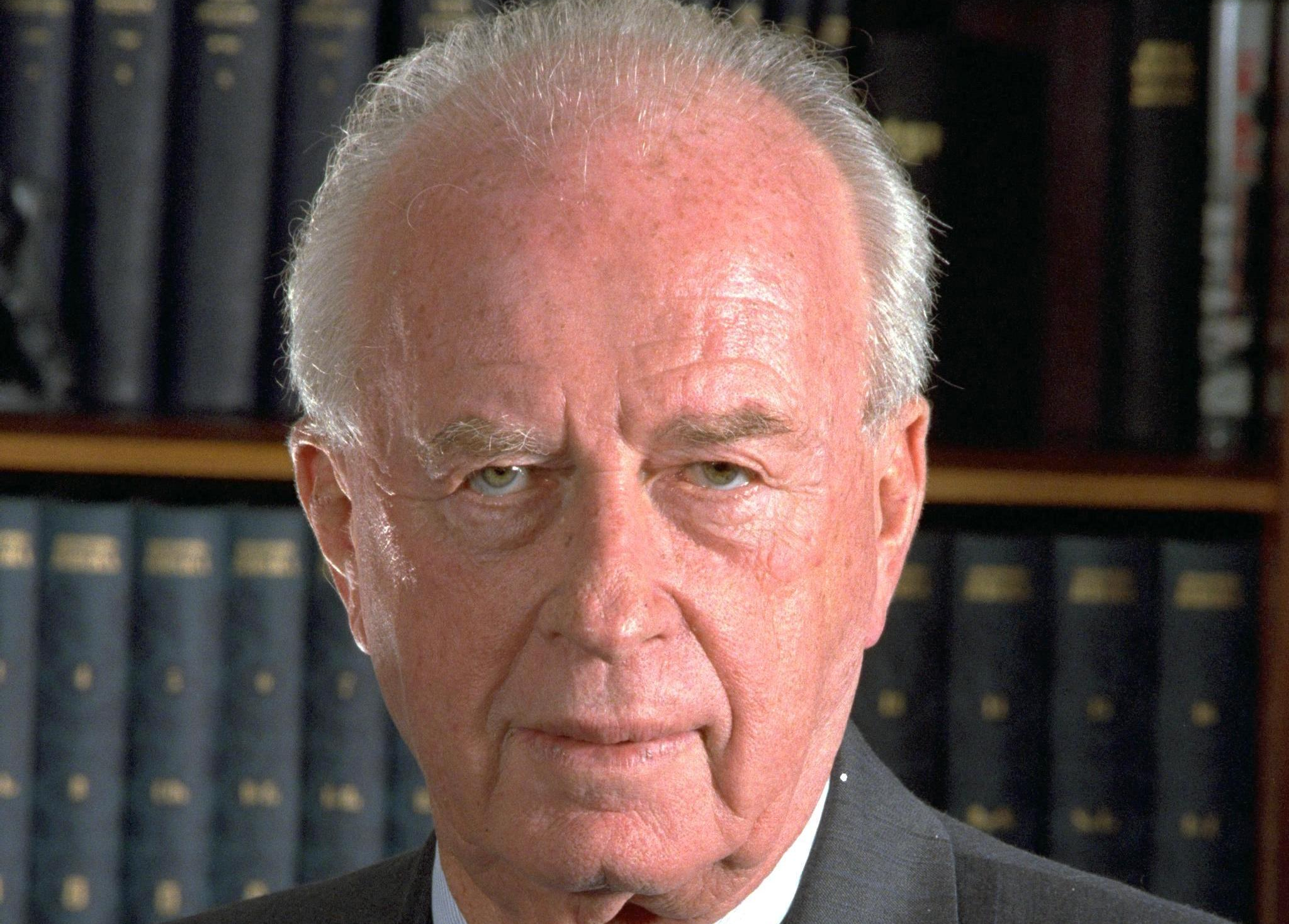 Yaakov Saar, CC BY-SA 3.0, Wikimedia Commons
Yaakov Saar, CC BY-SA 3.0, Wikimedia Commons
Giovanne Leone, President Of Italy
Another victim of the Lockheed scandal was Giovanne Leone, Italian President from 1971 to 1978. He resigned after it was revealed that Leone and his family members had received bribes from Lockheed-Martin to purchase Hercules aircraft for the Italian military, over and above those of Lockheed's competitors. He resigned in June following these allegations.
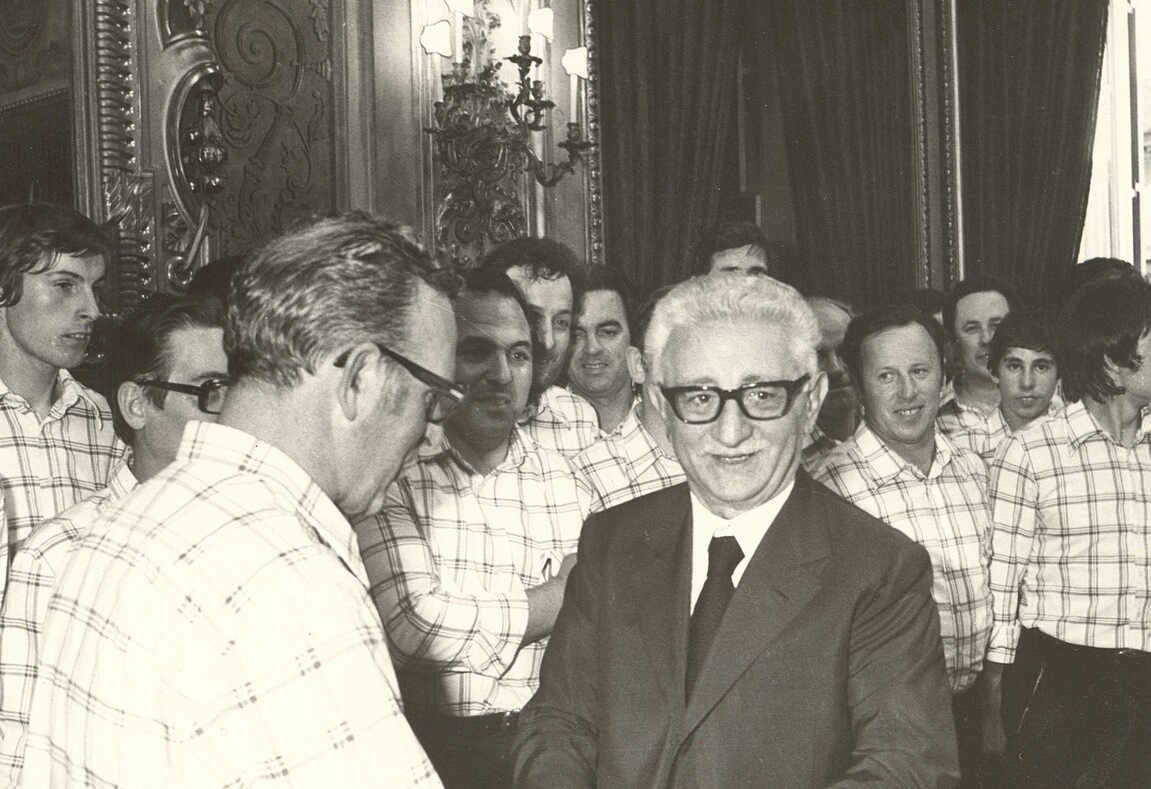 Daniele Gober, CC BY-SA 3.0, Wikimedia Commons
Daniele Gober, CC BY-SA 3.0, Wikimedia Commons
Ferdinand Marcos, President Of The Philippines
Ferdinand Marcos was less of a President and more of a dictator in the Philippines. He ruled the country under martial law from 1972 to 1981 until 1986, when he was deposed in a nonviolent revolution that forced his resignation. Marcos had tried to rig an election in his favor, which triggered government-toppling protests.
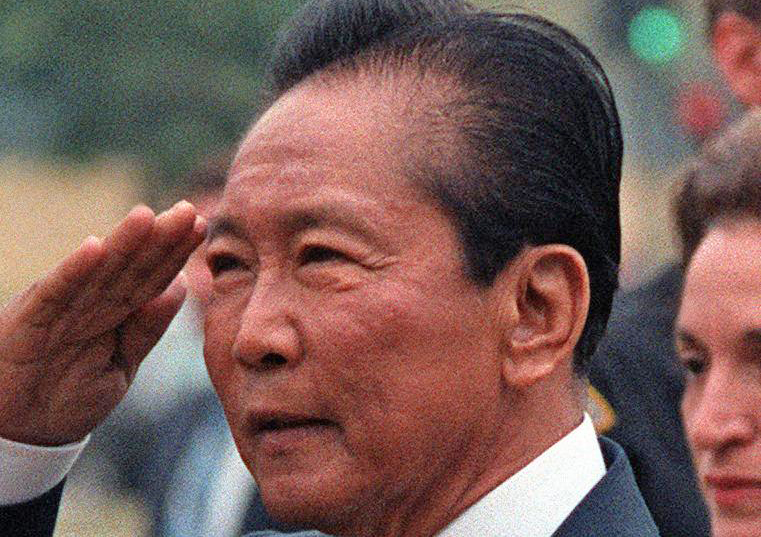 Spec. 4 Dino Bartomucci, CC BY-SA 3.0, Wikimedia Commons
Spec. 4 Dino Bartomucci, CC BY-SA 3.0, Wikimedia Commons
Albert Guðmundsson, Industry Minister Of Iceland
From a professional soccer star to the Icelandic Minister of Industry, Albert Guðmundsson was the Minister of Industry until his resignation in 1987 due to failure to pay his taxes properly.
 PA Images Archive, Getty Images
PA Images Archive, Getty Images
Nigel Lawson, Chancellor Of The Exchequer Of The United Kingdom
Nigel Lawson was the Chancellor of the Exchequer under Margaret Thatcher's Government from 1983 until 1989. He resigned after political differences with the "Iron Lady", although he and many others who resigned from Thatcher's government in 1989 were tarred with the same brush of failed conservative government policies.
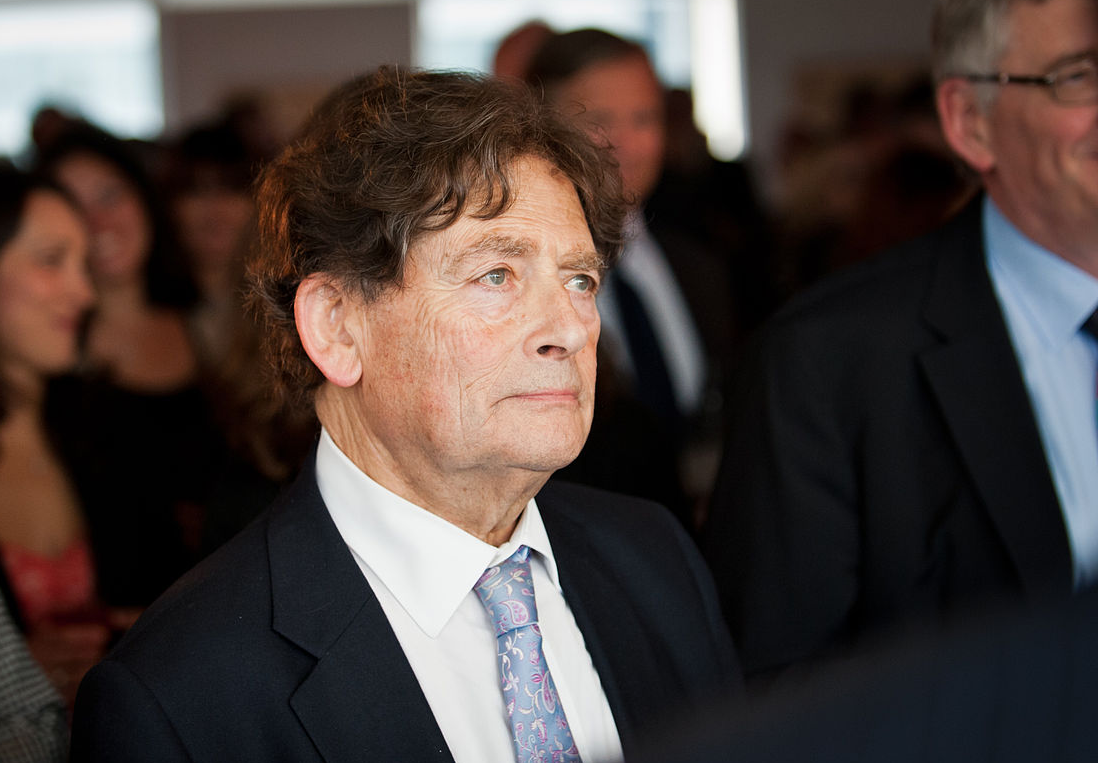 Financial Times, CC BY 2.0, Wikimedia Commons
Financial Times, CC BY 2.0, Wikimedia Commons
Margaret Thatcher, Prime Minister Of The United Kingdom
Despite Thatcher's initial popularity and strong policies of using military force against the Irish Republican Army and defending British overseas territory in the Falklands, her economic policies decimated the British people and economy. As a result, Thatcher lost a leadership contest on November 26, 1989, and resigned on November 27, 1989.
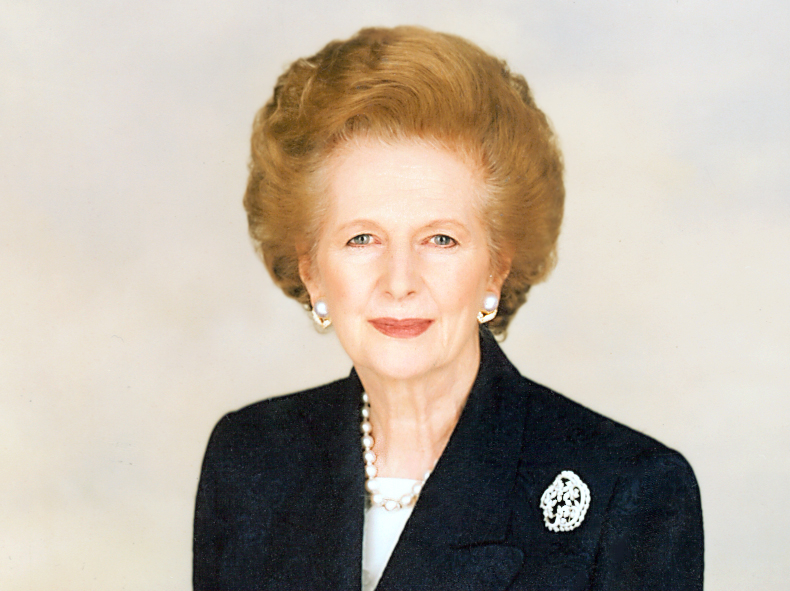 Terence Donovan, Wikimedia Commons
Terence Donovan, Wikimedia Commons
Louis Tobback, Minister Of Interior Of Belgium
The Belgian Interior Ministry came under heavy political and social pressure in September of 1998 following the escape of Belgian serial killer, Marc Dutroux, who was convicted of murder and assault on three separate occasions. The killer claimed he had help from the highest levels of the Belgian government and civil service. While these claims weren't proven, over 300,000 Belgians marched in the streets calling for the resignation of all involved. Tobback resigned in disgrace amid the public outcry.
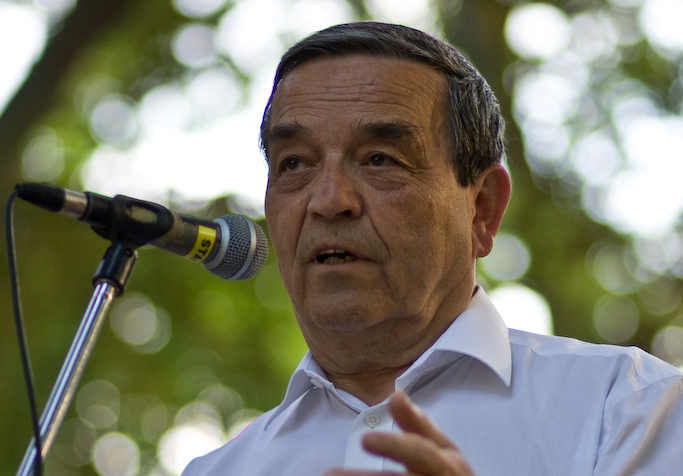 Simon Schoeters, CC BY 2.0, Wikimedia Commons
Simon Schoeters, CC BY 2.0, Wikimedia Commons
Peter Mandelson, Secretary Of State For Northern Ireland
Peter Mandelson used his influence as the Secretary of State for Northern Ireland to expedite a British passport application for two Indian brothers who were under investigation in India for violations of Indian law involving a weapons contract between India and Sweden. Mandelson resigned on January 24, 2001, when this influence was revealed.
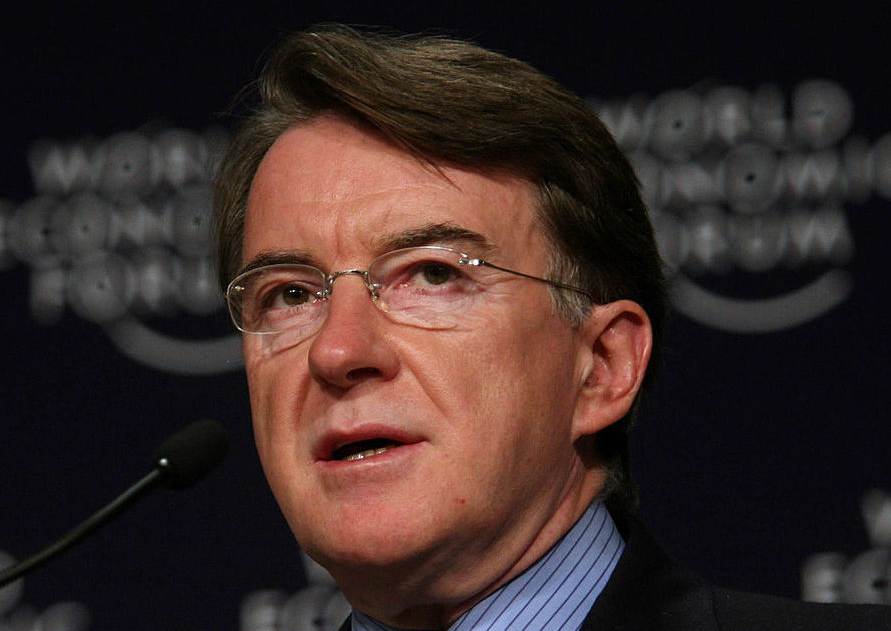 World Economic Forum on Flickr, CC BY-SA 2.0, Wikimedia Commons
World Economic Forum on Flickr, CC BY-SA 2.0, Wikimedia Commons
Fernando De La Rúa, President Of Argentina
Fernando De La Rúa was the 51st President of Argentina, governing between 1999 and 2001. An economic crisis in Argentina in 2001 led to a run on the banks, which led to his government establishing an economic measure that limited bank withdrawals by scared, desperate Argentines. He resigned in December 2001 following calls for a state of emergency that led to widespread riots in Buenos Aires.
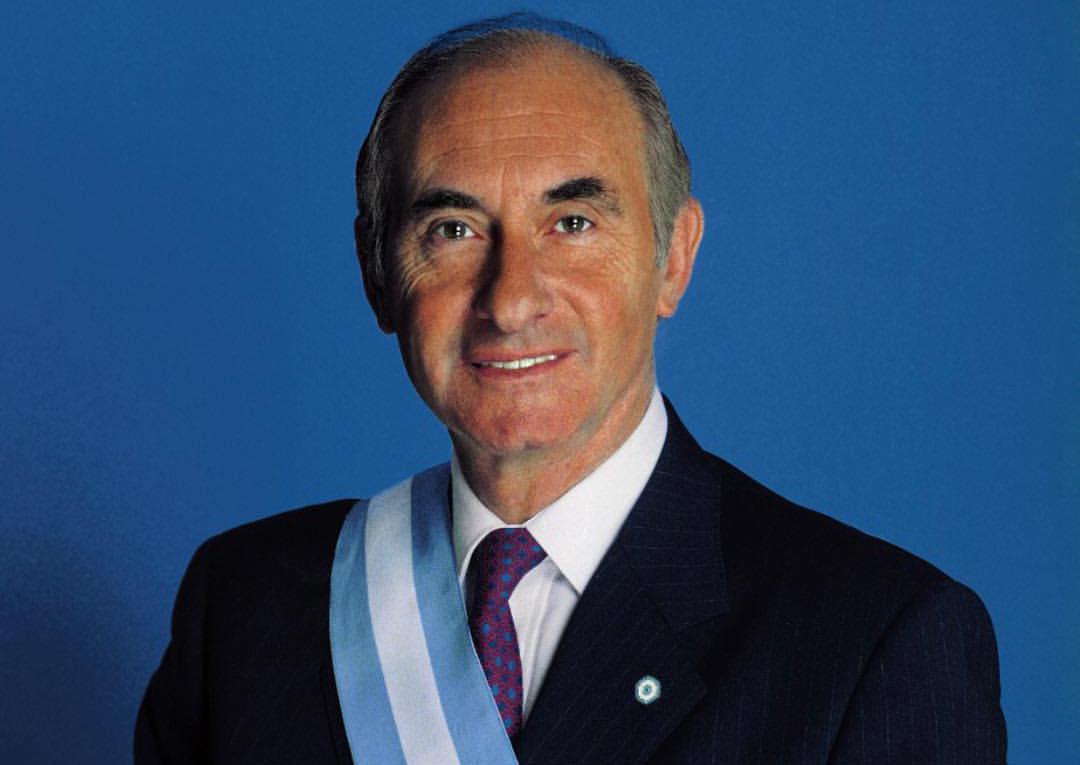 Presidencia de la Nación Argentina, CC BY 2.0, Wikimedia Commons
Presidencia de la Nación Argentina, CC BY 2.0, Wikimedia Commons
Hugo Chavez, President Of Venezuela
The infamous President of Venezuela would resign on April 11, 2002, following an opposition party march in Caracas, which ended with a shootout between the Metropolitan Police and members of the opposition, resulting in the deaths of 19 people. The military high command of Venezuela, reportedly, did not leave Chavez much choice but to resign. He was reinstalled two days later.
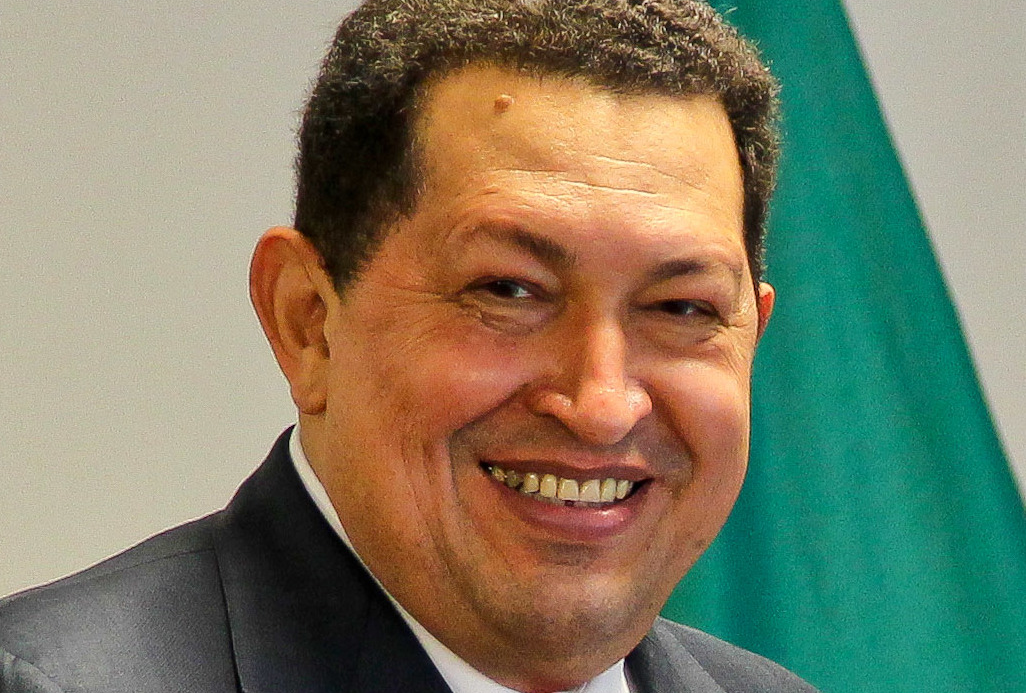 Office of the President of Brazil, CC BY-SA 2.0, Wikimedia Commons
Office of the President of Brazil, CC BY-SA 2.0, Wikimedia Commons
Peter Hollingworth, Governor-General Of Australia
Australia's Governor-General in 2002, Peter Hollingworth, used to be Archbishop Hollingworth of Brisbane. It was alleged that during his term as the Anglican Archbishop of Brisbane, he allowed former priests convicted of sex crimes to continue reading to the congregation.
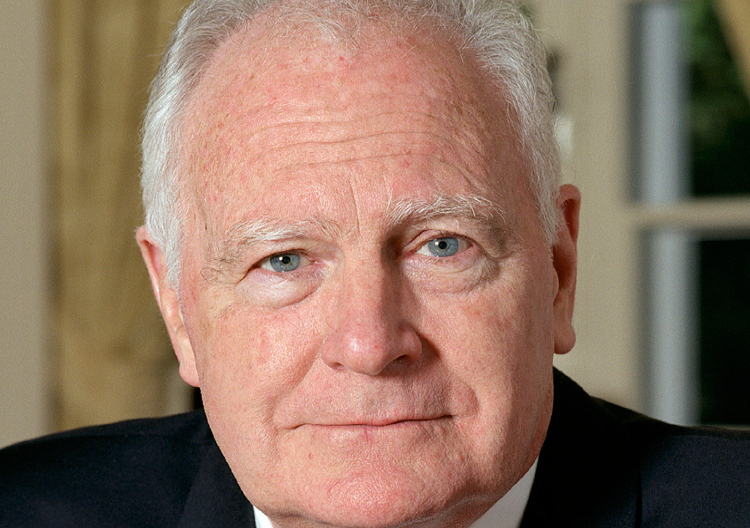 Governor-General of Australia, CC BY 3.0, Wikimedia Commons
Governor-General of Australia, CC BY 3.0, Wikimedia Commons
Charles Taylor, President Of Liberia
Charles Taylor was the President Of Liberia from August 2, 1997 until August 11, 2003. Taylor had taken part in the Second Liberian Civil War, which ravaged the country between 1999 and 2003, and was charged with war crimes and crimes against humanity by the International Criminal Court. He resigned his position following these allegations and was exiled to Nigeria.
Jim McGreevey, Governor Of New Jersey
James "Jim" McGreevey was the Governor of New Jersey from 2002 to 2004 and was embroiled in a couple of scandals that led to his resignation. The first was in appointing the unqualified Golan Cipel, a man he'd met on a trip to Israel in 2000 as the Counselor To The Governor with a salary of $110,000. Cipel later launched a sexual harassment lawsuit against McGreevey, leading to his resignation.
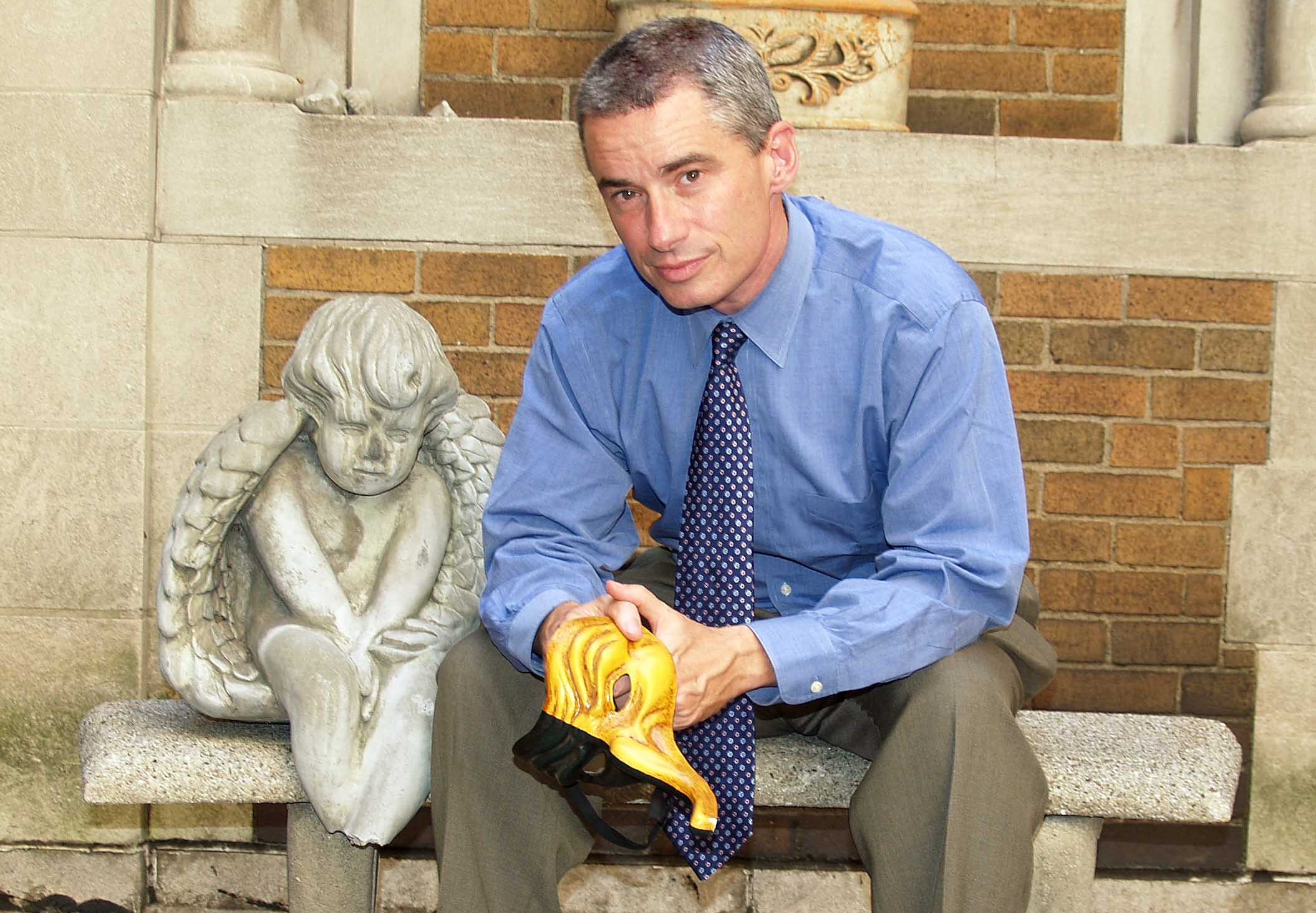 DavidShankbone, CC BY-SA 3.0, Wikimedia Commons
DavidShankbone, CC BY-SA 3.0, Wikimedia Commons
David Laws, Chief Secretary To The Treasury Of The United Kingdom
David Laws was the Chief Secretary to the Treasury of the United Kingdom in 2010, when it emerged he had funneled more than £40,000 of public money for a second home, something not allowed under financial legislation governing how MPs may spend public money.
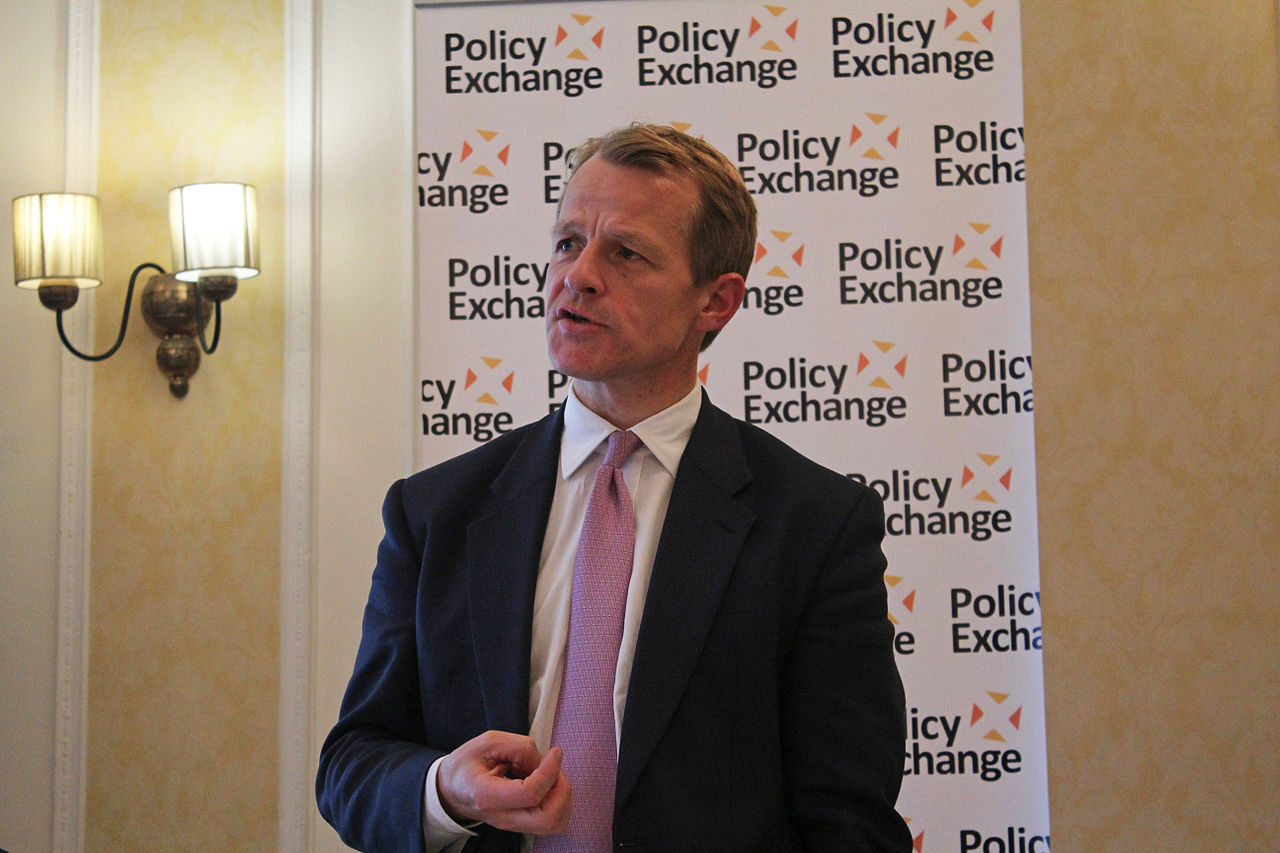 Policy Exchange, CC BY 2.0, Wikimedia Commons
Policy Exchange, CC BY 2.0, Wikimedia Commons
Christian Wulff, President Of Germany
Christian Wulff was Germany's youngest-ever President at 51, when he was elected in 2010. He served as President of Germany until February 17, 2012, when he resigned after unproven allegations emerged that he had accepted a loan from a friend who was an entrepreneur whilst he was Minister President of Lower Saxony, and had misrepresented these funds to the Parliament of Lower Saxony. Wulff resigned as President, but was acquitted of corruption two years after his resignation.
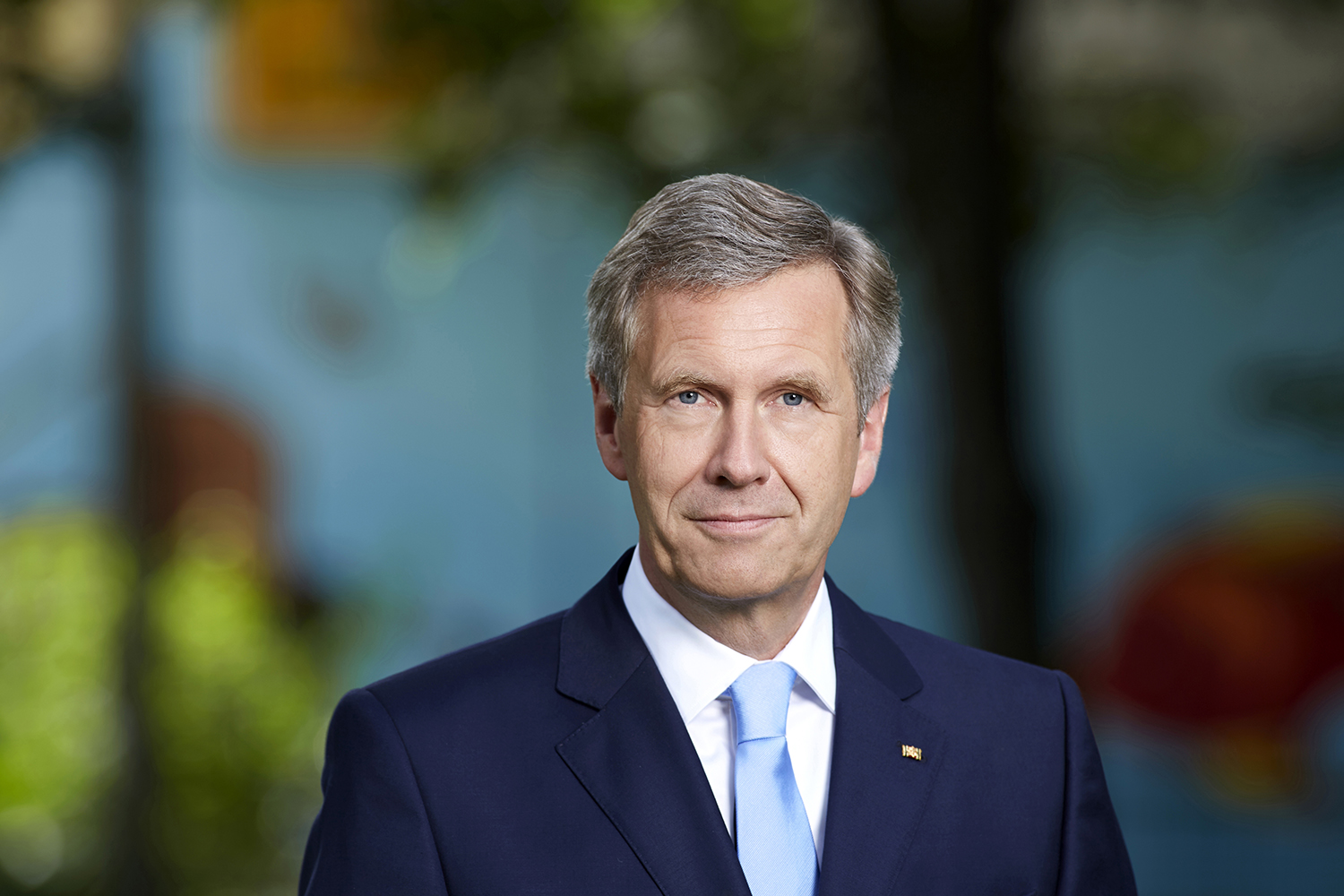 Laurence Chaperon, CC BY 2.0, Wikimedia Commons
Laurence Chaperon, CC BY 2.0, Wikimedia Commons
David Petraeus, Director Of The CIA
General David Petraeus was the director of the CIA under President Obama in 2012, when he was found to be exchanging emails and having an extramarital affair with the writer of his biography, Paula Broadwell.
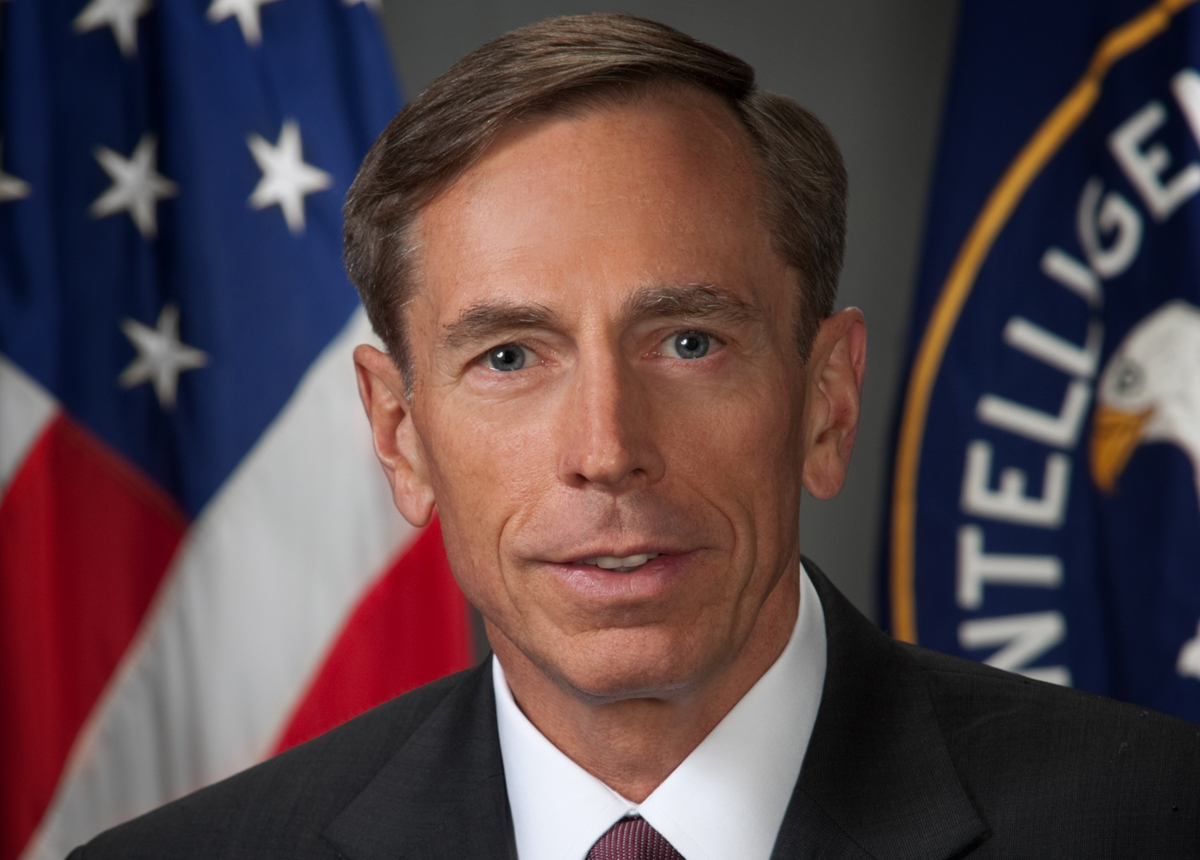 Darren Livingston, Wikimedia Commons
Darren Livingston, Wikimedia Commons
Judith Collins, Minister Of Justice Of New Zealand
In 2014, Judith Collins was the Minister Of Justice Of New Zealand, where she was accused of a number of conflicts of interest, including promoting a milk product that was exported to China—her husband was revealed to be on the board of the product's creator. Additionally, her association with a New Zealand-based right-wing blogger was cause for public scrutiny. She resigned her post in 2014, but has since returned to national politics.
 Royal Society Te Apārangi, CC BY 4.0, Wikimedia Commons
Royal Society Te Apārangi, CC BY 4.0, Wikimedia Commons
Sigmundur Davíð Gunnlaugsson, Prime Minister Of Iceland
Serving as Prime Minister of Iceland from May 2013 till April 2016, Sigmundur was the youngest Prime Minister in Icelandic history, at just 38. His mistake? Owning an offshore company with his wife, then selling his share to his wife for a dollar, the day before a new law would have required him to disclose this ownership of that company. He resigned following that revelation in the Panama Papers.
Michael Fallon, Secretary Of State For Defense Of The United Kingdom
British defense secretary Michael Fallon resigned from office on November 1 2017, following allegations of sexual harassment, including one incident where a British journalist reported that he touched her knee during a dinner and "told him that if he did it again, I'd punch him in the face". He was accused of a number of other lewd or inappropriate comments towards staff and colleagues.
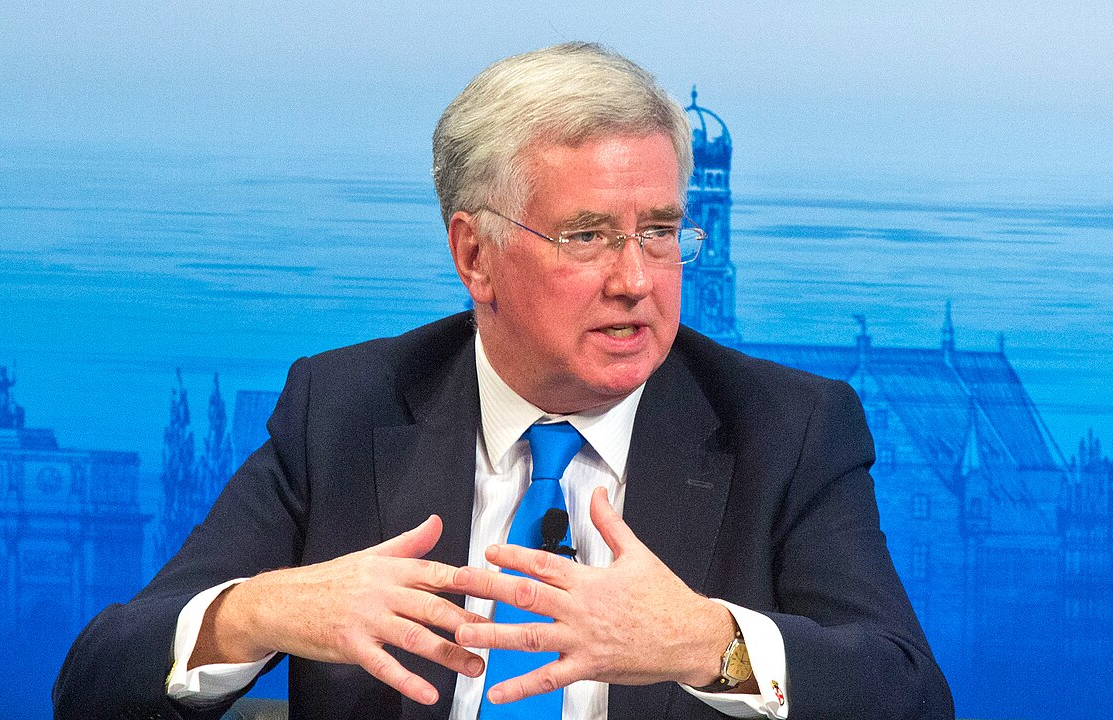 Zwez / MSC, CC BY 3.0, Wikimedia Commons
Zwez / MSC, CC BY 3.0, Wikimedia Commons
Priti Patel, UK Secretary Of State For International Development
Priti Patel would become the Home Secretary of the United Kingdom (the third most powerful post in the Cabinet) in 2019. But not before she would resign as Secretary of International Development following a failure to disclose a meeting she had with Israeli officials, after a private holiday in Israel in 2017.
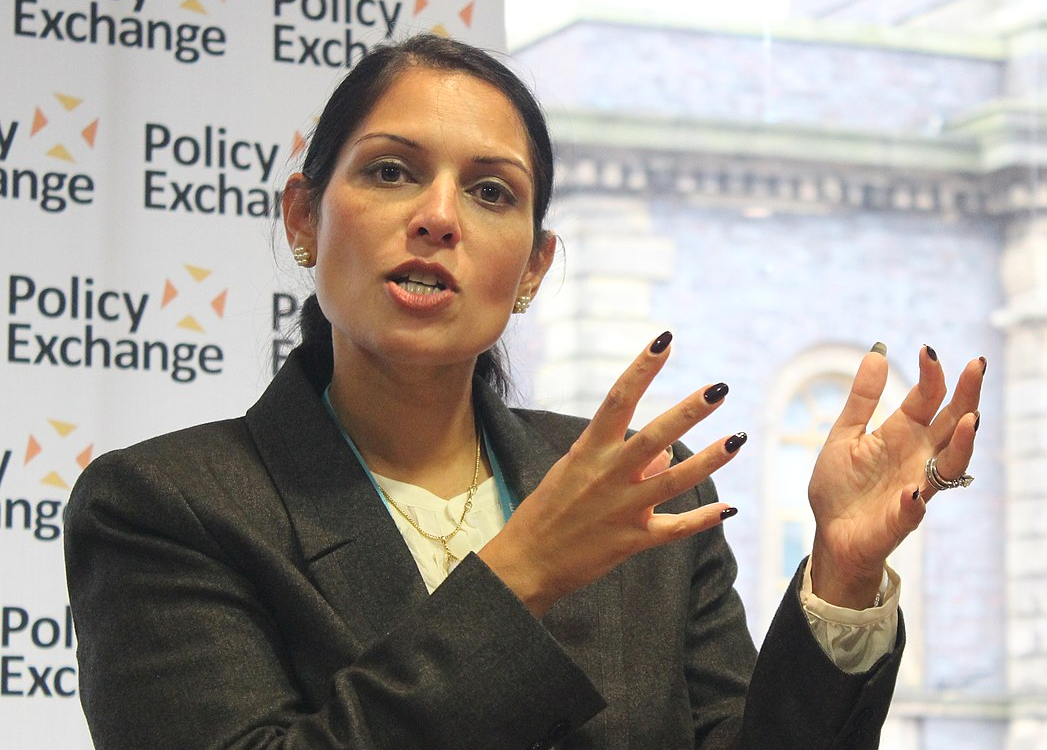 Policy Exchange, CC BY 2.0, Wikimedia Commons
Policy Exchange, CC BY 2.0, Wikimedia Commons
Amber Rudd, Home Secretary Of The United Kingdom
Before Priti Patel, there was Amber Rudd, the Home Secretary of the United Kingdom who lied to Parliament about the Windrush scandal. The Windrush scandal involved at least 83 people who were British citizens, wrongly detained, denied legal rights, and deported from the UK in the wake of the Government's anti-migrant policies.
 Chris McAndrew, CC BY 3.0, Wikimedia Commons
Chris McAndrew, CC BY 3.0, Wikimedia Commons
Julie Payette, Governor-General Of Canada
The astronaut turned Governor-General was resoundingly kicked out of her post following a workplace review of Rideau Hall (the Governor-General's residence) which determined that she had "created a toxic, verbally abusive workplace", that involved "belittling, berating and publicly humiliating staff".
 Johanie Maheu, CC BY-SA 4.0, Wikimedia Commons
Johanie Maheu, CC BY-SA 4.0, Wikimedia Commons
Mark Rutte & His Entire Cabinet, Prime Minister Of The Netherlands
Dutch Prime Minister Mark Rutte and his entire cabinet resigned on January 15, 2021, following a scandal in which the Tax and Customs Administration of the Netherlands had falsely accused tens of thousands of Dutch families of committing fraud when claiming childcare benefits. After the ruling in 2021 that the department's institutional biases had resulted in more than 26,000 families being driven into financial hardship, PM Rutte and his entire cabinet resigned in one day.
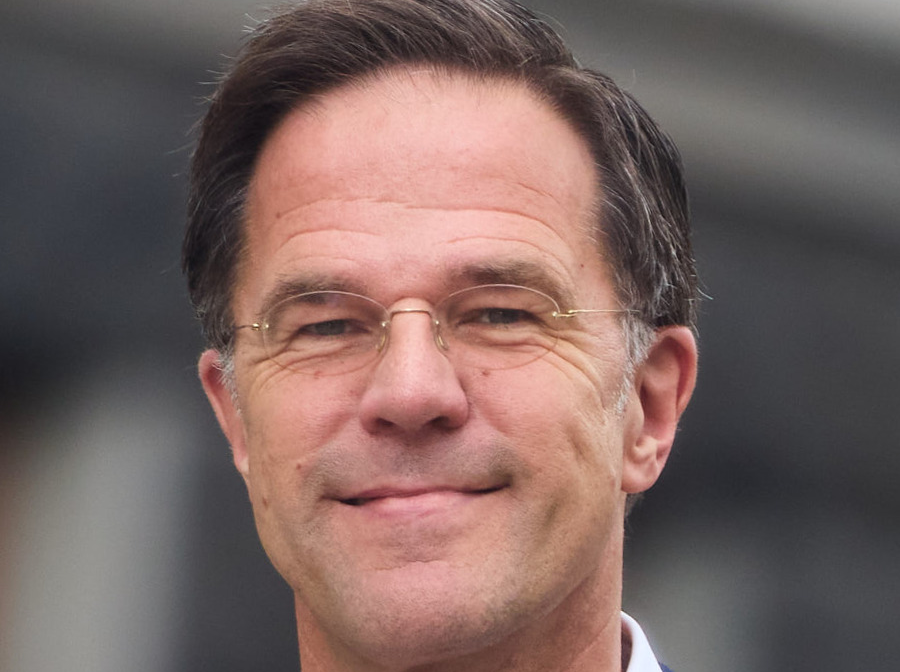 President.gov.ua, CC BY 4.0, Wikimedia Commons
President.gov.ua, CC BY 4.0, Wikimedia Commons
Robert Jenrick, United Kingdom Minister Of State For Immigration
Robert Jenrick was the man in charge of Boris Johnson's UK-Rwanda Migration and Economic Development Partnership. This agreement between the British and Rwandan governments essentially allowed for the deportation of economic migrants from British shores to Rwanda, en-mass. Jenrick's resignation came following enormous public outcry over the policy.
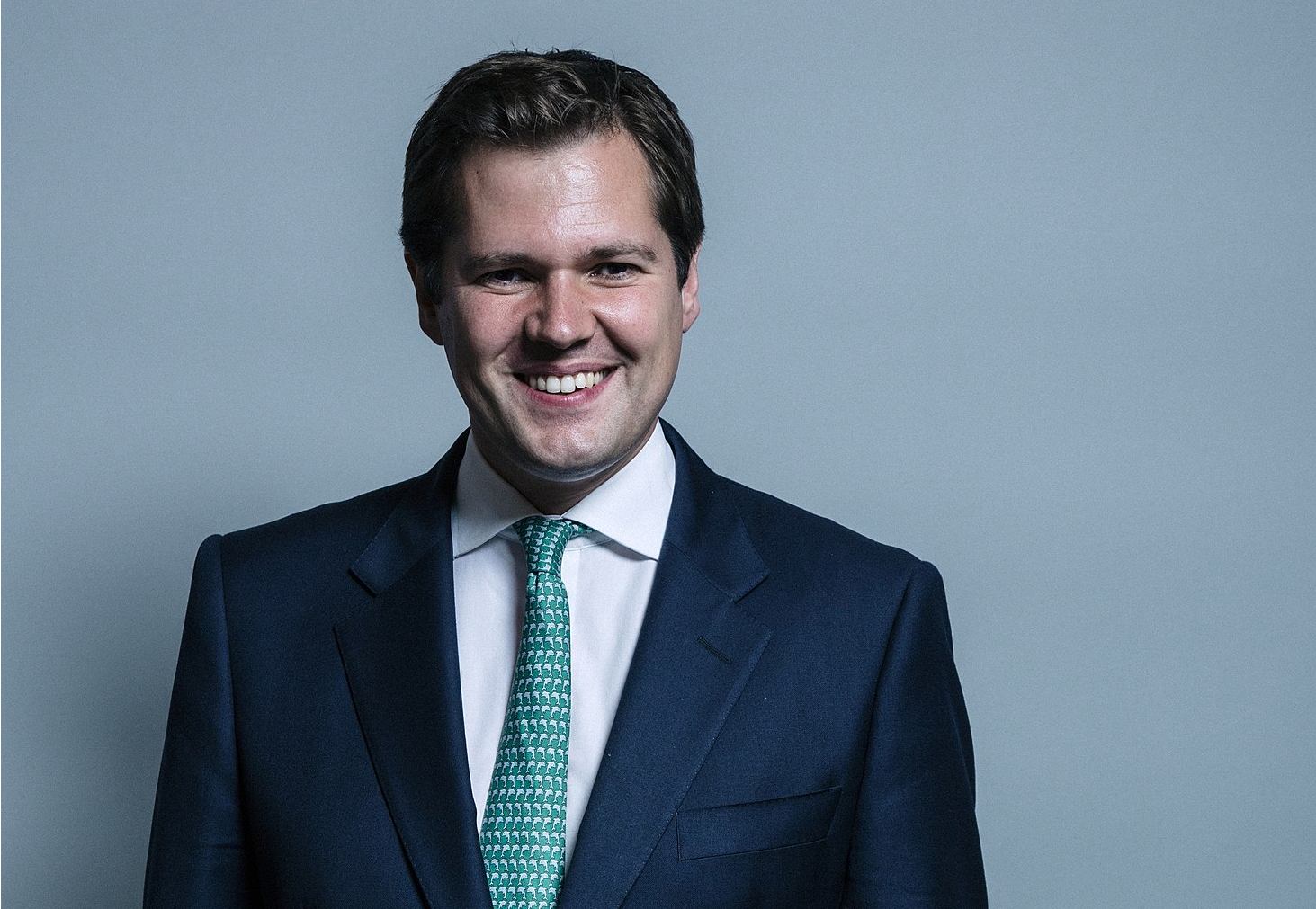 Chris McAndrew, CC BY 3.0, Wikimedia Commons
Chris McAndrew, CC BY 3.0, Wikimedia Commons
Boris Johnson, British Prime Minister & Most Of His Government
On July 7, 2022, following a week of mass resignations after a sexual assault scandal involving one of Johnson's MPs, where 31 ministers resigned (including 11 in 24 hours), Prime Minister Johnson asked the Queen to accept his resignation, which she did.
Anthony Rota, Speaker Of The House Of Commons Of Canada
Following the Speaker's decision to allow Yaroslav Hunka, a Ukranian-Canadian, to speak on the House floor, Anthony Rota's resignation was announced, after it was revealed that Hunka had been an SS officer during WWII, including being implicated in the killing of Polish civilians and referring to the Wehrmact as "mystical German knights" in his memoirs.
Silvio Berlusconi, Scandaler-In-Chief
Despite all of the extraordinary scandals on our list, none can quite compare to the scandalous political career of Italian Prime Minister, Silvio Berlusconi. Among his (many) transgressions, were the shortening of the statute of limitations on tax evasion crimes for his own personal benefit, being investigated more than 40 times for tax fraud, reducing press freedom to the point where American press freedom institutes downgraded Italy's "Press Freedom Ranking". And, he was convicted of paying for relations with an underage girl in 2014. He was sentenced to seven years in prison and banned for life from public office.

